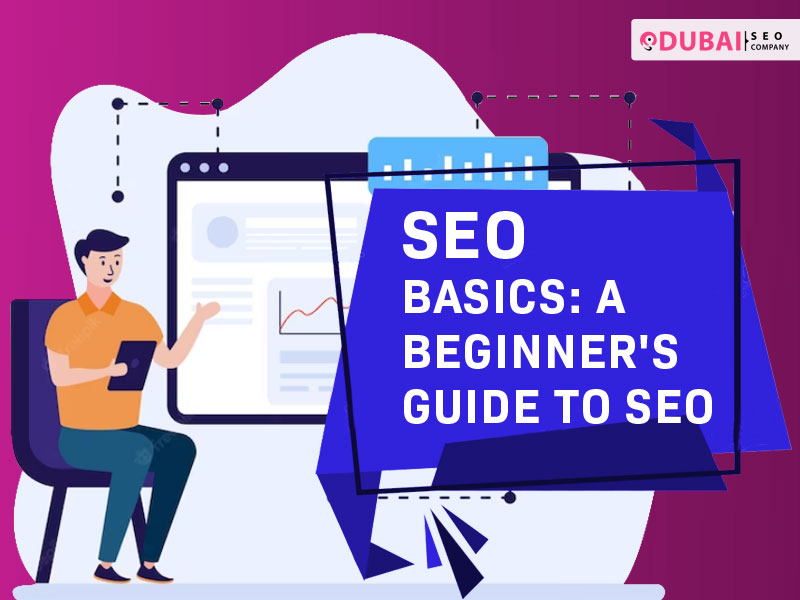Learn the fundamentals of SEO and discover how to optimise your website for better visibility and higher rankings in search engine results. SEO Basics: A Beginner’s Guide To Your Online Presence.
With millions of websites competing for users’ attention, it’s critical to differentiate yourself from the competition and make it simple for your target market to find you. And it is where Search Engine Optimisation (SEO) comes into play. A website’s visibility and ranking in search engine results pages (SERPs) are improved through the practice of SEO.
We will look at SEO principles and how you can use them to improve your online presence in this beginner’s guide to SEO.
SEO: What is & Why is it Crucial to Understand?
The term “SEO” refers to various methods and tactics used to raise your website’s organic (unpaid) prominence in search engine results. Search engines like Google employ advanced algorithms to choose which websites to display when users type in a specific keyword or phrase.
You can improve your chances of ranking higher in these search results and attracting more natural visitors to your website by putting SEO-recommended practices into action.
On-Page Optimisation: Increasing the Visibility of Your Website
On-page optimisation aims to make your website more visible to search engines by improving various website features. Here are some crucial aspects to pay attention to:
- Keyword research: Finding relevant keywords that users of your target market are likely to use as searches is an excellent place to start. You can identify popular keywords and their search volumes using tools like Google Keyword Planner.
- Meta tags and descriptions: These HTML elements offer a brief overview of the information on your website. Title tags and meta descriptions with relevant keywords can increase the visibility of your website in search results and encourage users to click through.
- URL structure: Ensuring your website’s URLs are SEO-friendly and contain appropriate keyword phrases will help search engines better understand what’s on your website.
- Content optimisation: Do not overload your content with keywords because it will negatively impact your ranks. Instead, concentrate on producing insightful content that addresses the queries and issues of your audience.
Off-Page Optimisation: Establishing Credibility and Authority
Off-page optimisation is the term for actions taken outside of your website to increase its authority and visibility. Some essential off-page optimisation techniques are:
- Link building: Building the authority of your website requires obtaining backlinks from reputable domains. Concentrate on building relationships with influencers in your sector, guest blogging, and content promotion to acquire high-quality backlinks.
- Social media marketing: To market your content, raise brand awareness, and boost social sharing, interact with your target audience with social media marketing. Likes, shares, and comments from other users might indirectly affect how well your website is ranked.
- Online listings and directories: Make sure your company is appropriately and consistently listed in all applicable web directories and listings. It boosts your local SEO efforts while also increasing the visibility of your website.
Technical SEO: Improving Background Components
Technical SEO focuses on the technical elements of your website that have an impact on how easily search engines can crawl and index it. Among the most important technical SEO factors are the following:
- Website speed: A quick website load time is essential for a satisfying user experience and higher search engine rankings. Utilise cache methods, image compression, and code compression to improve the performance of your website.
- Mobile optimisation: It is crucial to create a mobile-friendly website, given the rise in popularity of mobile devices. A better user experience is made possible by responsive design, quick page loads, and simple mobile navigation, which can also raise your website’s search engine rankings.
- XML sitemaps: Search engines can better crawl your website by understanding its structure when you create and upload XML sitemaps to them.
Analytical Tracking and Evaluation of Your SEO Activities
Monitoring and analysing the performance of your website is essential to determining the efficacy of your SEO strategy. Track crucial statistics like organic traffic, keyword rankings, click-through rates, and user interaction with tools like Google Analytics and Google Search Console. Regular analysis of these indicators will reveal what is working well and where there is room for improvement.
Selecting a Reputable SEO Company
While you can apply SEO tactics on your own, working with a top SEO company can help you get more out of your efforts while accelerating your results. Think about the following things when choosing an SEO company:
- Expertise and experience: Choose a business that has a strong track record and a lot of experience in the SEO sector. To evaluate their expertise, look at their portfolio and recommendations from clients.
- Services provided: Confirm that the SEO company provides a wide range of services, including analytics, technical SEO, off-page optimisation, and on-page optimisation.
- Personalised strategy: A reputable SEO agency will recognise that every organisation is different and needs a customised strategy. Avoid businesses that guarantee ranks or employ unethical SEO techniques, as these could result in penalties from search engines.
- Responsibility in Reporting: The SEO company should offer regular reports that concisely describe the development of your SEO operations and their effects on the functionality of your website.
SEO is a crucial component of digital marketing that significantly impacts your website’s success and exposure. Your website’s visibility, organic traffic, and online presence can be dramatically improved by selecting the correct SEO company and implementing good SEO methods.
This beginner’s guide will help you optimize your website for search engine rankings and attract your target audience. To guarantee that your website remains competitive in the constantly changing digital landscape, keep up with the most recent trends and algorithms by keeping an eye on SEO, an ongoing process.


